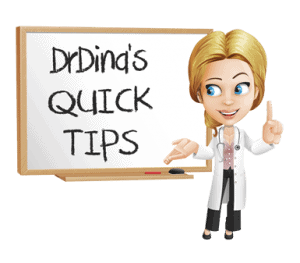Toe Walking – When to Seek Help
I work in a multidisciplinary office, meaning that there are always kiddos running around who are working with other therapists – occupational therapists, speech therapists, behavior therapists, and preschool teachers. In such a busy environment, I’ll often get pulled aside by another therapist to take a look at a child who is walking on their toes. This is always an interesting scenario, since toe walking can range from a totally normal developmental phase to a larger issue.
What is toe walking?
Toe walking is a very common developmental phase that most children go through as they learn to walk. From when your child learns to walk until around 2 years old, it is not out of the ordinary to see your toddler up on their tip toes, and taking steps with their heels not touching the ground. Concerns may arise when the child continues to walk on their toes beyond that age range. In these cases, it can simply be a habit that the child has developed, a sensory seeking behavior, or a sign of a larger issue.
Why does it happen?
There are many reasons children will walk on their toes, and figuring out the cause sometimes is not cut and dry. Toe walking can be a result of a developmental phase, a sensory processing concern, a neurological concern, or structural changes of the calf, ankle, or foot due to habitual pattern. Examples of these include:
- Tactile defensiveness (hypersensitivity to sensations, so they may not like the feeling of their whole foot on the floor)
- Proprioceptive issue (being up on their toes helps them understand where their body is in space and gives them lots of input which helps prepare their bodies for play and learning)
- Tight calf muscles (after some time up on their toes, the muscles that do this movement become tight)
- Weak dorsiflexors (the muscles that help bring them back on their heels become overly stretched and weak)
- Neurological disorder (signals from the brain to the foot are keeping them up on their toes)
- Autism spectrum disorder (typically related to sensory processing issues)
Not every child who walking on toes will receive a formal diagnosis. Many children will just outgrow the habit as they age. If a child is showing no other signs of developmental delay other than toe walking, they will typically outgrow this pattern and continue with typical development. Toe walking is only concerning to a therapist when it is combined with other sensory processing issues or a developmental delay.
Treatment
The approach to treating toe walking depends on what is causing the child to walk on their toes, and how often they do it. Treatment methods include:
For muscles that have become tight:
- Stretching
- Bracing to limit the child getting up on their toes (stiff boots or shoes)
- Serial casting (series of casts applied over time to gradually stretch the heel cords)
- Botox injections (to temporarily paralyze the calf muscle so that it is easier to stretch)
- Surgical lengthening
- Strengthening exercises for the opposing muscles
For children who require a sensory approach:
- Brushing protocol (as instructed by a physiotherapist or occupational therapist)
- Vibration techniques
- Other tactile approaches
What to do?
If your child is over the age of 2 and walking on their toes regularly, speak with you pediatrician or family doctor. Keep an eye out for other sensory processing, developmental or motor concerns, and see if you child can stand on flat feet if they try. Your doctor will guide you in the right direction and let you know if further consults with a physiotherapist or occupational therapist are needed. If you see a PT or OT, be sure to follow through with the home program they create for your child.
Quick Tips:
-
Toe walking is a typical developmental phase until 2-3 years of age
-
Speak with your pediatrician if toe walking continues longer or you are concerned
-
Keep an eye out for other sensory or developmental issues
Does your child have pain in heel of foot?
What are the best shoes for flat feet?
Check out our baby development chart to see how your baby measures up.
Jennifer is a registered physiotherapist working in the field of paediatrics. She has worked with children of all ages, helping them to achieve their motor milestones through various therapeutic approaches. Jenn also has extensive experience working with infants with torticollis and plagiocephaly. As a new mom herself, she loves sharing her experiences and learning from others.











